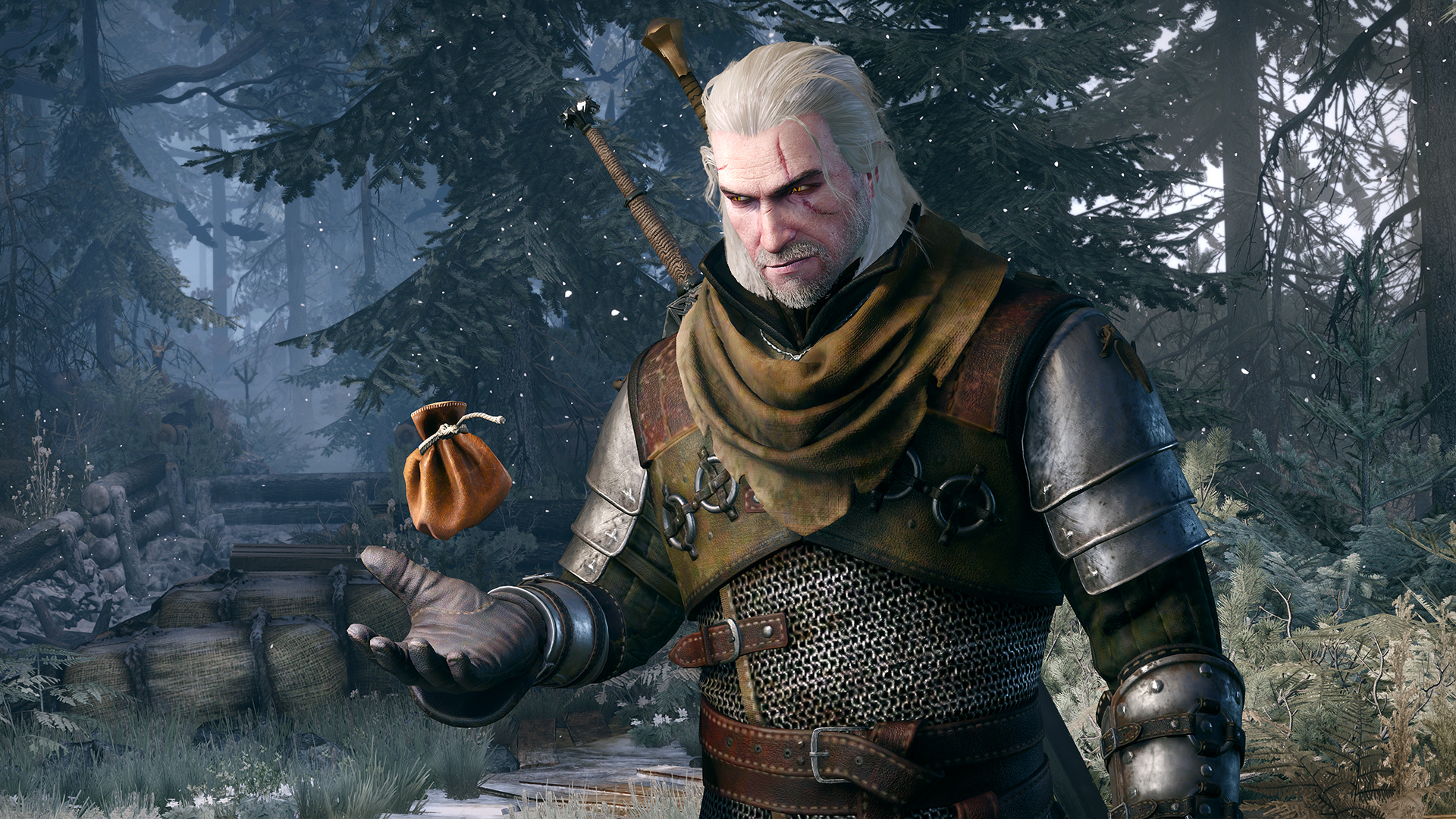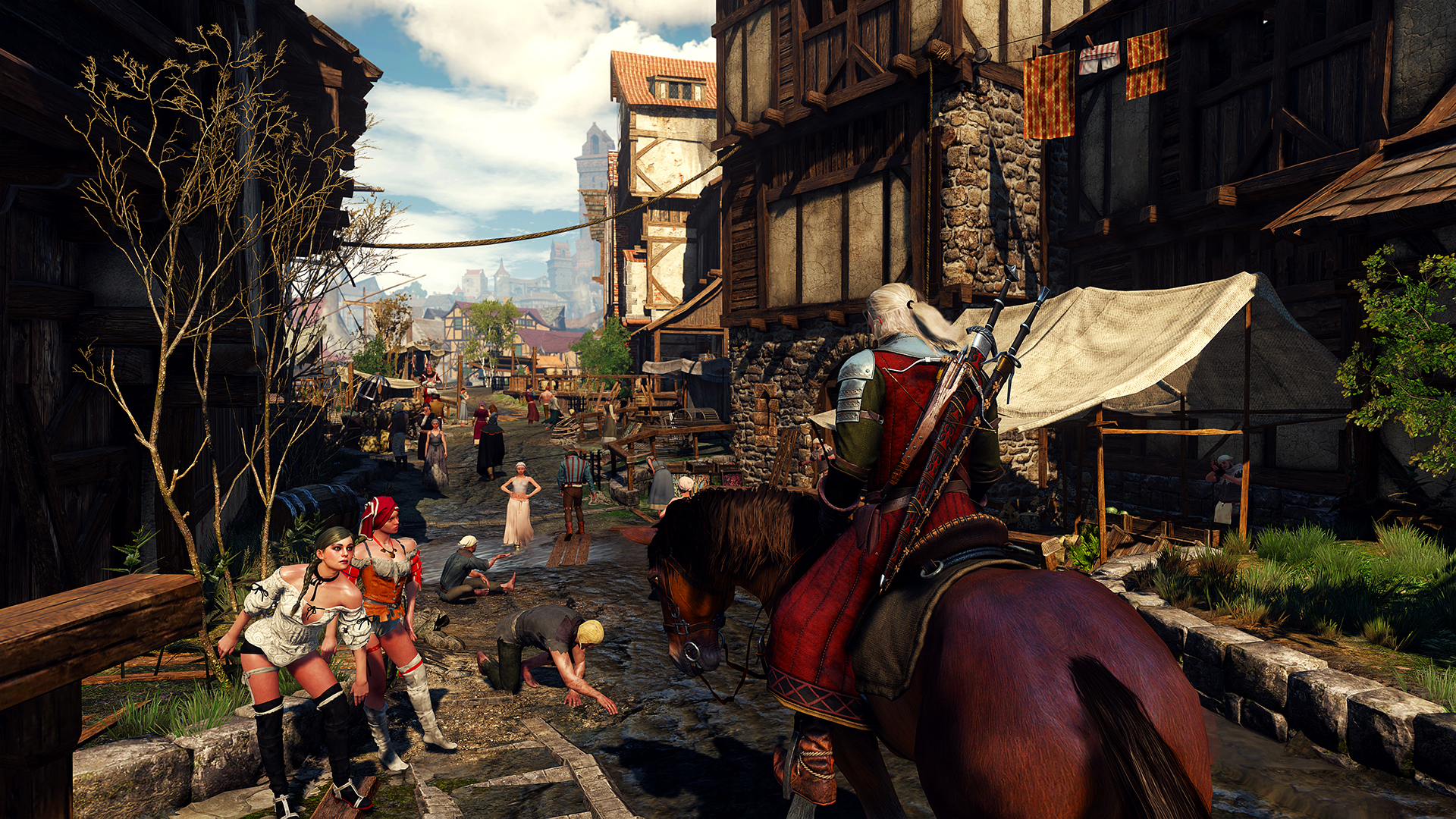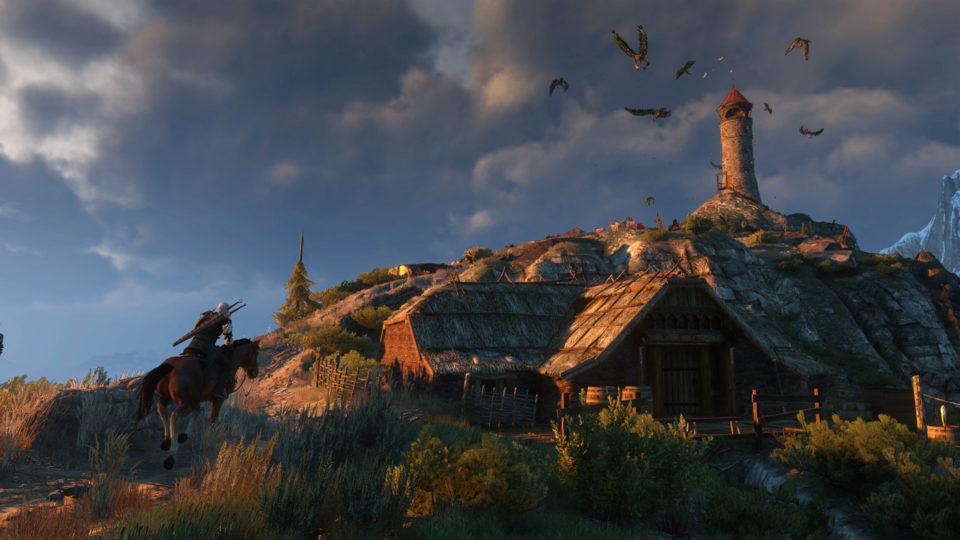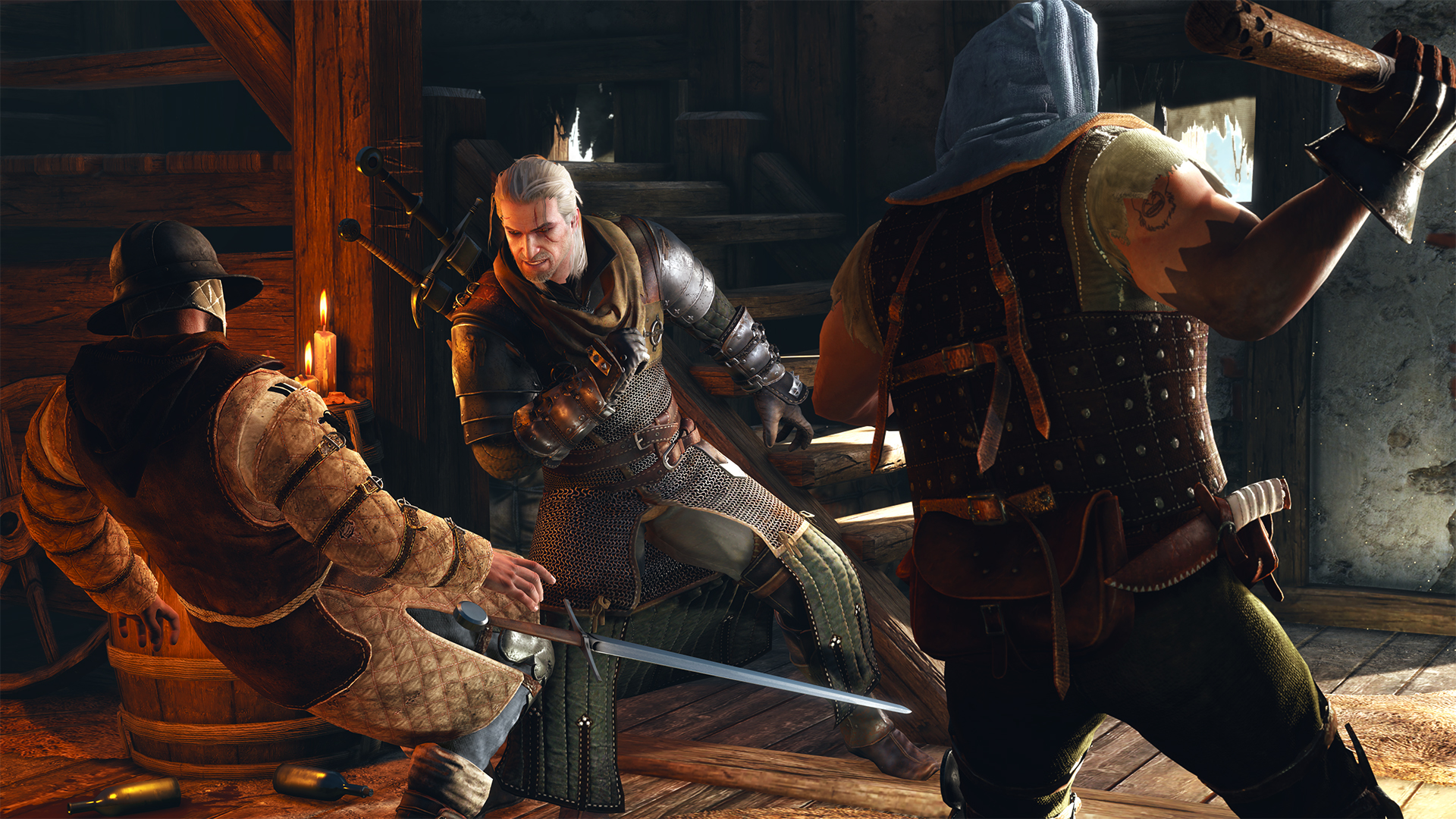If you were to walk up to the overflowing “Fantasy” shelf at your local bookstore and crack five books at random, three or four of them are likely to exhibit some familiar characteristics. You would read about long-lived elves that dart through misty forests; underground dwarves that covet gold; ferocious orcs bred to kill indiscriminately. For generations, the ghost of J.R.R. Tolkien has held the fantasy genre in a thematic chokehold, with many popular authors adapting their own thinly veiled versions of the highly influential legendarium he established in The Lord of the Rings and its ancillary works.
But while some figures in the world of fiction have fought back against the weight of these dusty tropes—especially women authors like N.K. Jemisin, Nnedi Okorafor, and Naomi Novik—in the realms of video games, this “classic” template still very much rules the day. From isometric classics like Baldur’s Gate to the go-anywhere, do-anything Skyrim, the medieval fantasy worlds of gaming vary in scale and scope, but they undoubtedly tend towards the traditional, especially in the big-budget space. However, there’s one game in particular that tackles these beloved constructs with vigor, while also critiquing some of their more troublesome aspects with grace and good humor, and that’s The Witcher 3: Wild Hunt.

When discussing fantasy, I often find it useful to consider each work from the perspective of the tone or subgenre that they’re trying to invoke. As any hopeless geek well knows, it was The Lord of the Rings that first established the frame of “high fantasy” or “epic fantasy.” These are works that attempt to emulate the larger-than-life tenor of ancient myths and the clear morality of fairy tales—clashes between the forces of capital-G Good and capital-E Evil that play out on a realm-shattering scale. Though these are exactly the sorts of stories that many people imagine when they hear the word “fantasy”—after all, just look at the popularity of Brandon Sanderson’s work, or the buzz surrounding the upcoming TV adaptation of Robert Jordan’s Wheel of Time—in the intervening decades, contemporary authors have bucked the Manichean worldview and grand scope of Tolkien’s output to focus on the gritty, even quotidian struggles of everyday people within these fictional worlds. The Witcher 3 epitomizes this dichotomy.
At first blush, The Witcher 3 does not come across as a particularly progressive or transgressive work, especially if you have limited knowledge of the litany of fantasy works that preceded it. The opening of the game seasons its thick exposition with copious amounts of unnecessary nudity, as if to loudly proclaim its own maturity. In these opening hours, you could easily mistake Geralt of Rivia for any other sword-swinging hero: a gruff monster hunter-for-hire who will take on seemingly any task for a handful of coin, and who loudly declares his distaste for the unseemly politics of court intrigue at every turn. Spend a few hours in his battered boots, however, and you’ll soon find that there’s a lot more to Geralt and the brutal, lively world that he inhabits.

Like many other works in this genre, both The Lord of the Rings and The Witcher cast outsiders as their protagonists. Traditionally, authors put newcomers or outcasts in this role so that the audience can explore and discover this unknown world at the same pace as their point-of-view character, who they ostensibly identify with. In LOTR’s case, since hobbits are stereotypical homebodies who live in what is essentially an agrarian utopia, Frodo Baggins’ unquenchable thirst for travel makes him stand out from his friends and neighbors, and he learns the ropes of adventuring from his friends in the Fellowship as they progress. In this way, Tolkien posits Frodo and his adoptive uncle Bilbo as grand exceptions: humble hobbits who have abandoned their natural tendencies to become celebrated heroes of their age.
By contrast, Geralt of Rivia has more in common with your friendly neighborhood exterminator than the mythic knight in shining armor. Though he ends up saving plenty of helpless peasants throughout the game’s hundred-plus hours, the “White Wolf” is far from a selfless savior; to our modern eyes, he’s just another freelancer trying to ply his trade the best way he knows how. To be fair, Andrzej Sapkowski’s books do a better job of establishing this characterization than the games, especially since you can rack up a ton of gold very quickly through sidequests; in one early short story, Geralt wheels a dead monstrosity around a village in a cart, trying to find a patron to pay him for his services rendered. (Based on my own career, this is unfortunately true to the freelance experience.)

For all of Tolkien’s endless inventiveness—you don’t have to look very far to find an ent, a balrog, or a Ringwraith knock-off in any given fantasy game—there is something very naïve about the world of Middle-earth. A fan might call it innocent, but many critics would use a harsher word: infantile. As famed author Michael Moorcock once suggested in his infamous essay, “Epic Pooh,” Tolkien’s prose “is meant to soothe and console… It is frequently enjoyed not for its tensions but for its lack of tensions.” He compares The Lord of the Rings to highly regarded children’s books like The Wind in the Willows or Watership Down, arguing that their empty nostalgia and fixation on the bucolic English countryside belies a deep-seated conservatism that confirms many of the preconceptions of Tolkien’s ideal audience: comfortable middle-class moderates who trust in the good sense of the elites who steer the ship.
In Middle-earth, the Other comes in many forms—all of them Evil, of course—but by far the most common are the hordes of brutish Orcs, the dark-skinned terrors that serve as the armies of Sauron. Over the years, academics have spilled an entire factory’s worth of ink dealing with the stark racism of idealized white saviors slaying “tribes” of dull, dim-witted orcs who, in the author’s own words, lack the ability to “make beautiful things.” In the world of Tolkien, members of these fantasy “races” are doomed to replicate the same handful of stereotypical traits, over and over; the orcs are evil because they were created by evil beings. Therefore, it should be no surprise that Tolkien’s beloved hobbits—who he created out of whole cloth, rather than borrowing liberally from mythological sources, as he did for many of his other inventions—naturally perpetuate the petit-bourgeois values of his own time.
If Tolkien’s characters are perhaps a bit too convinced of their own righteousness, The Witcher 3 can occasionally suffer from the opposite problem: a protagonist hesitant to stand for anything at all. As a supernaturally gifted warrior himself, Geralt has felt the sting of the barbs that humans sling at outsiders and monsters firsthand. (As with many modern works of fantasy, the “traditional” non-humans like dwarves and elves are treated with similar levels of suspicion.) Despite his pragmatic attitude, Geralt still abides by the witcher’s code, which means that he refuses to kill monsters that display true sentience or human-like characteristics. The game is very careful to give the player the option to side with the monsters in many quests, which allows you to choose just how compassionate you want your Geralt to be. That said, Geralt’s attitude always tends towards the apolitical, which can strain credibility at times, given that he spends much of the game’s main quest serving the whims of royals. True to its sword-and-sorcery roots, The Witcher 3 is at its best when you’re living the life of a monster hunter, solving somebody else’s problem for a big bag of gold, rather than chasing down a magic MacGuffin to save the world.

For me, the most memorable moment of the game came in a sidequest, where my Geralt was lured into a failed boulder trap by a gang of angry monsters. At the end of the quest, I discovered their plot and confronted their leader, a werewolf desperate to get revenge on all witchers. The game gave me the option of either taking them all on at once, or arguing that my Geralt was, in fact, a friend to monsters. Though you only need to cite two examples to convince most of the gang to stand down, I had six to choose from. While it might seem like a minor part of a massive, sprawling game, the fact that The Witcher 3 even gave me the option to “talk to the monsters” demonstrates why it is the most essential work of fantasy that we have yet seen in video games.
It’s very unlikely that the “high fantasy” milieu first inaugurated by Tolkien will ever truly fade out of fashion—like elves, some things are truly immortal, after all. However, whether we like it or not, the world of fantasy has largely moved beyond this simple good versus evil dichotomy, even using the genre to explore real-world issues like prejudice, colonialism, and the lingering harm of empire. The Witcher 3 is far from a perfect work, but it’s a deeply human one, and that’s why it stands for the future of fantasy.

Steven T. Wright is a reporter and novelist living in the Twin Cities. He is the former independent games columnist for Variety, and he has written for Rolling Stone, Polygon, Vice, and many others. He almost named his novel after a city in Final Fantasy, but his friends talked him out of it.